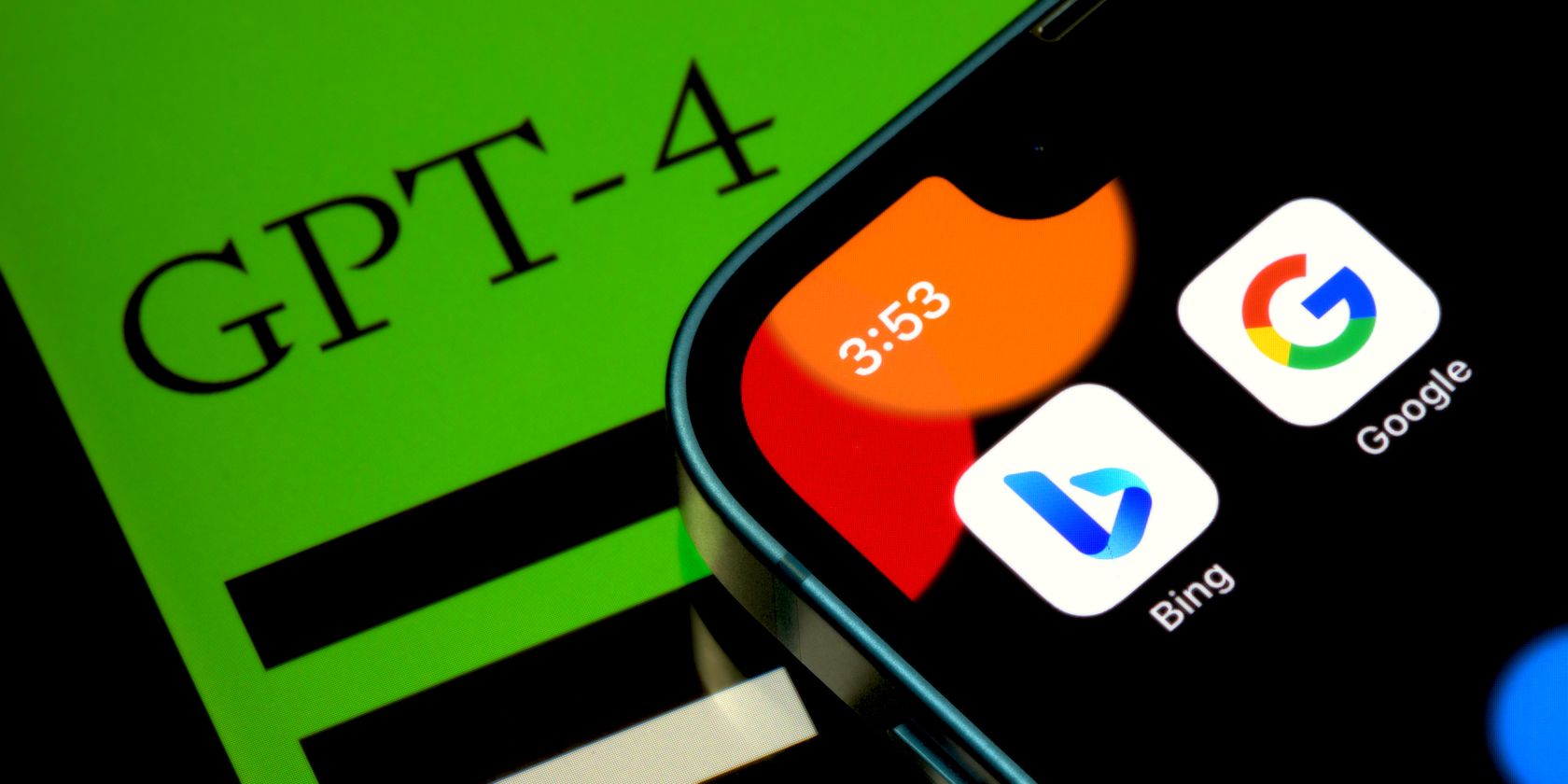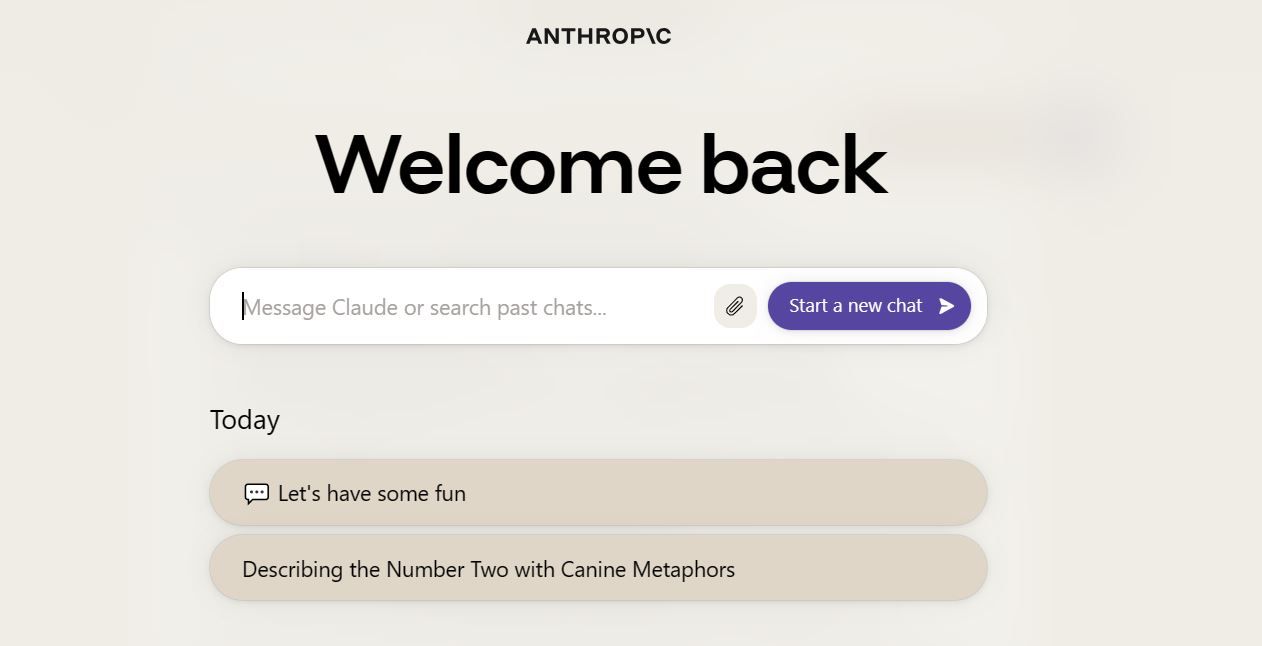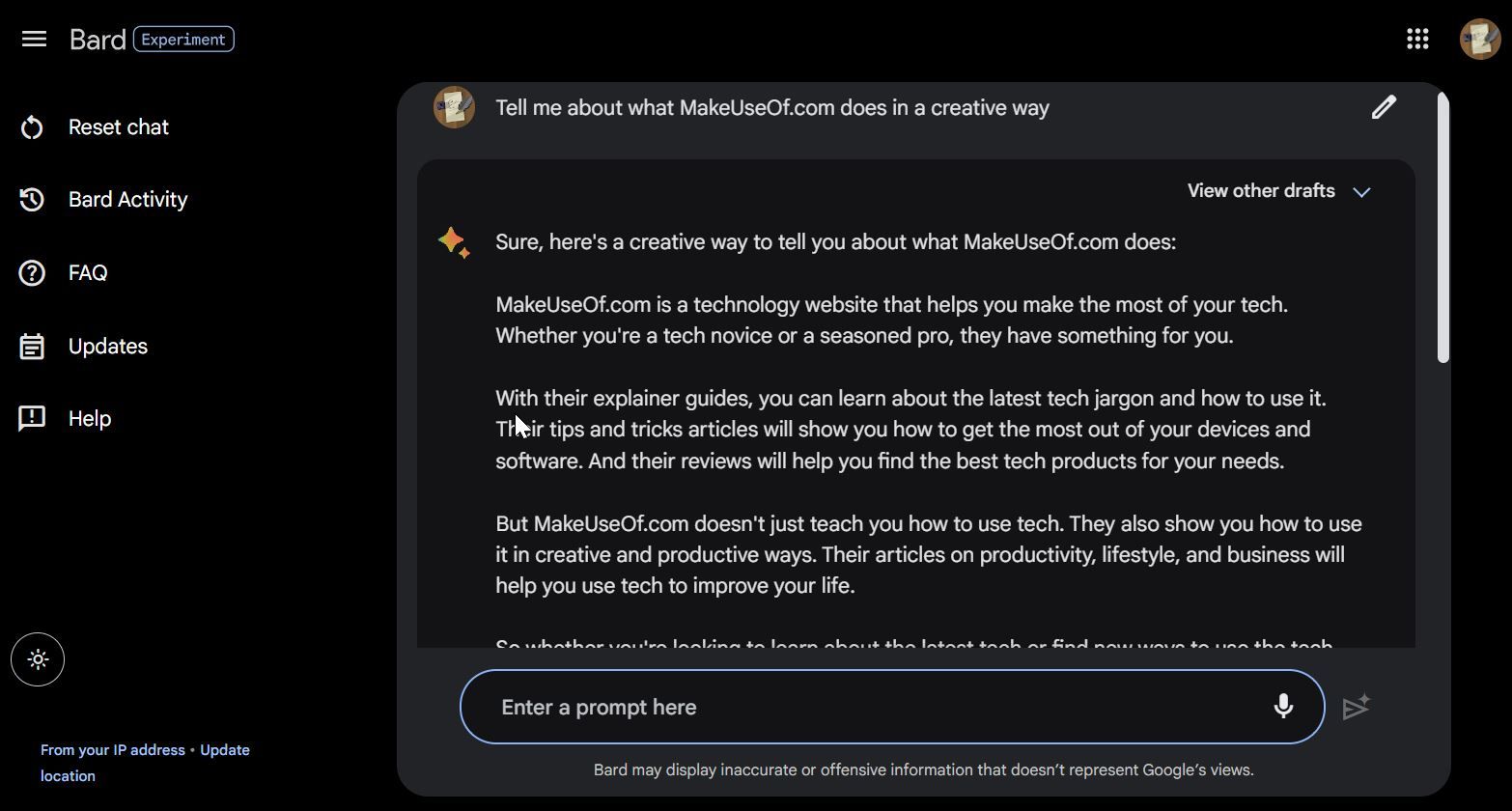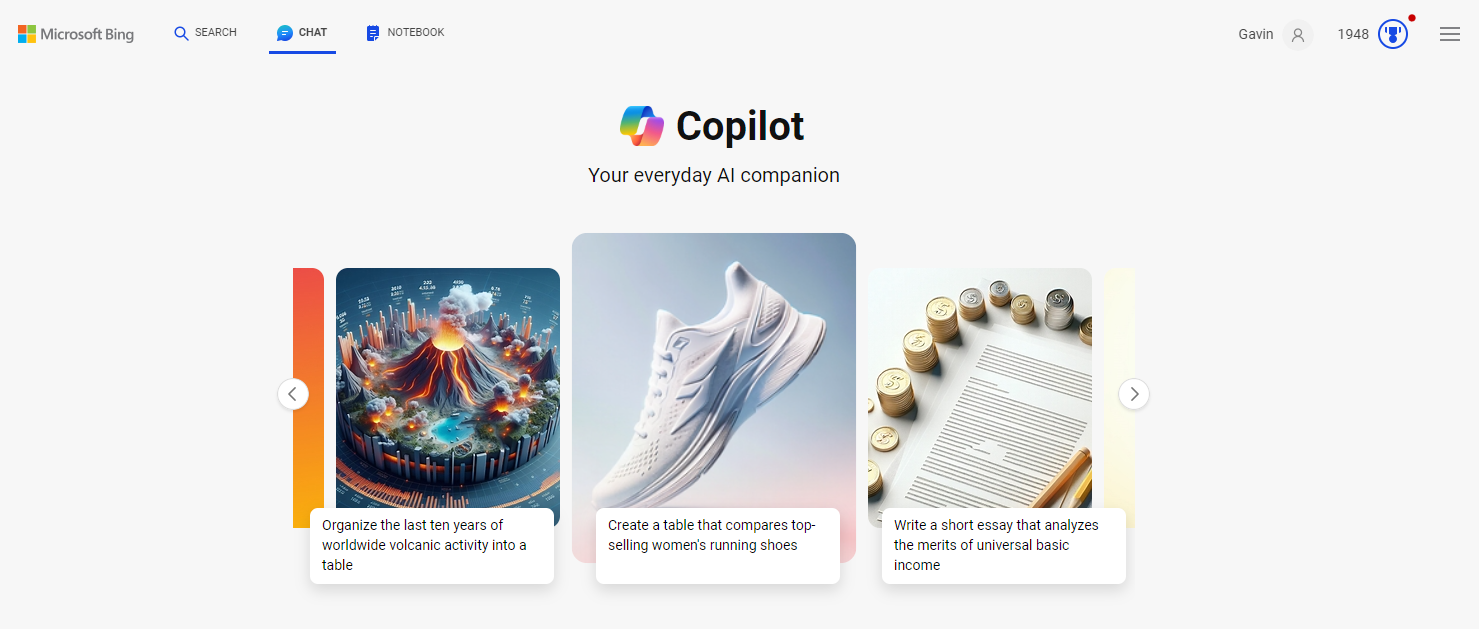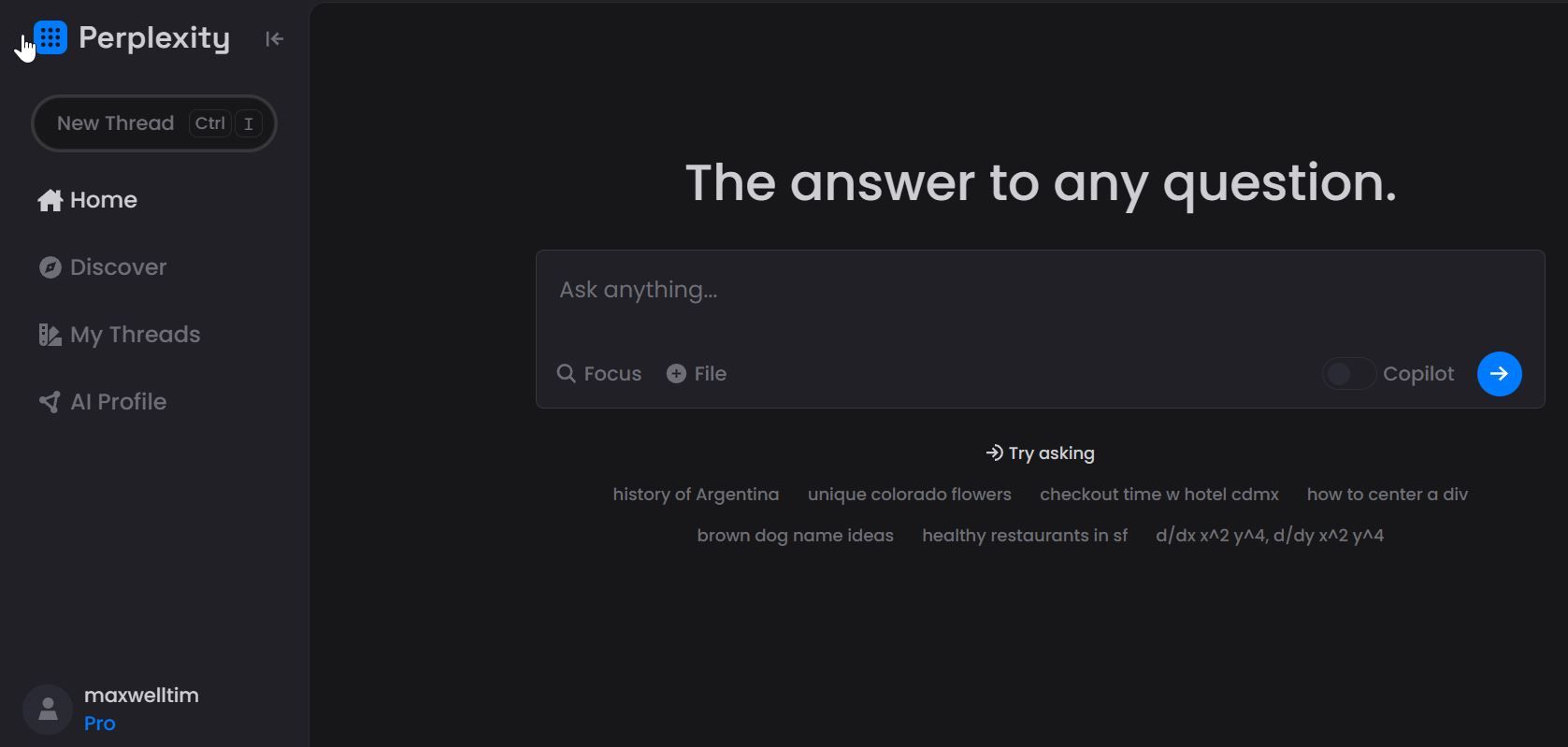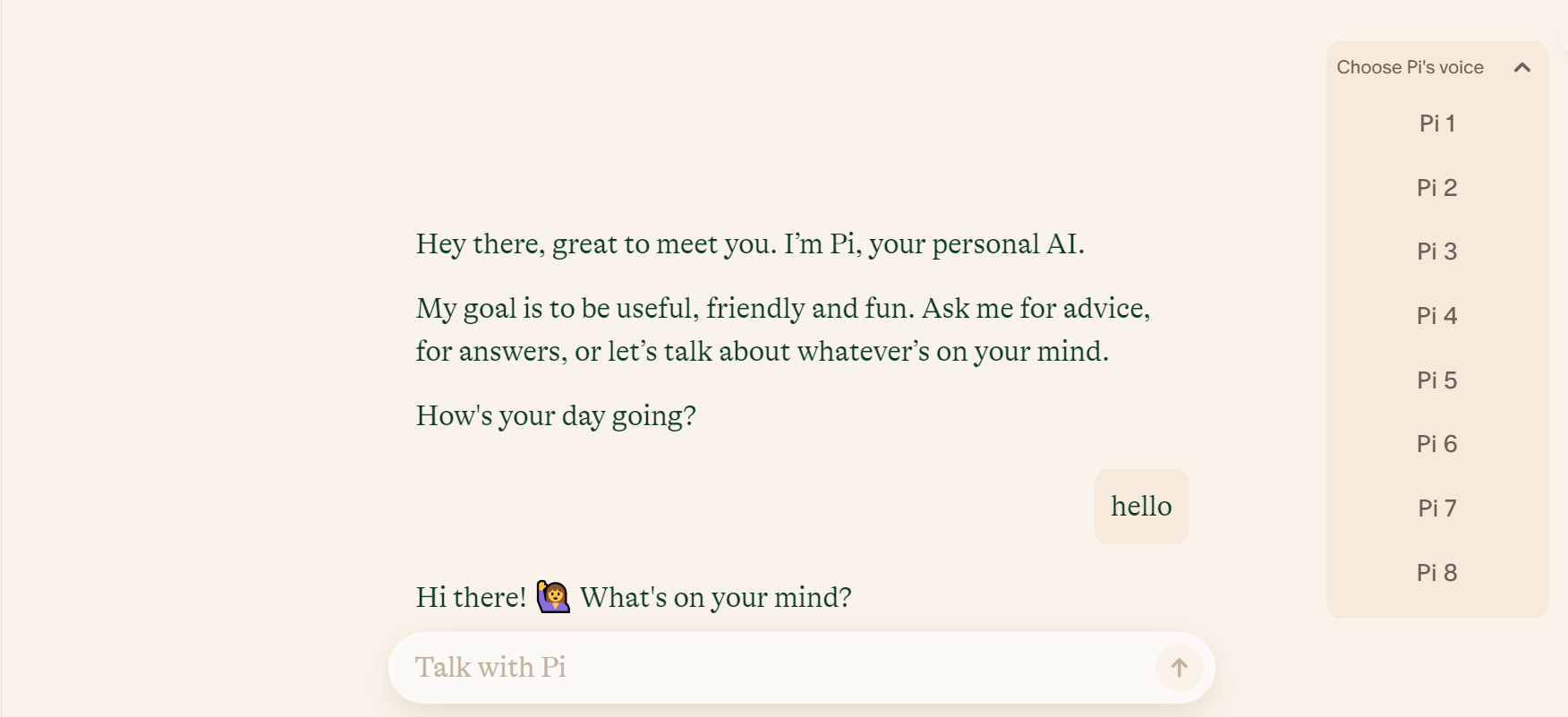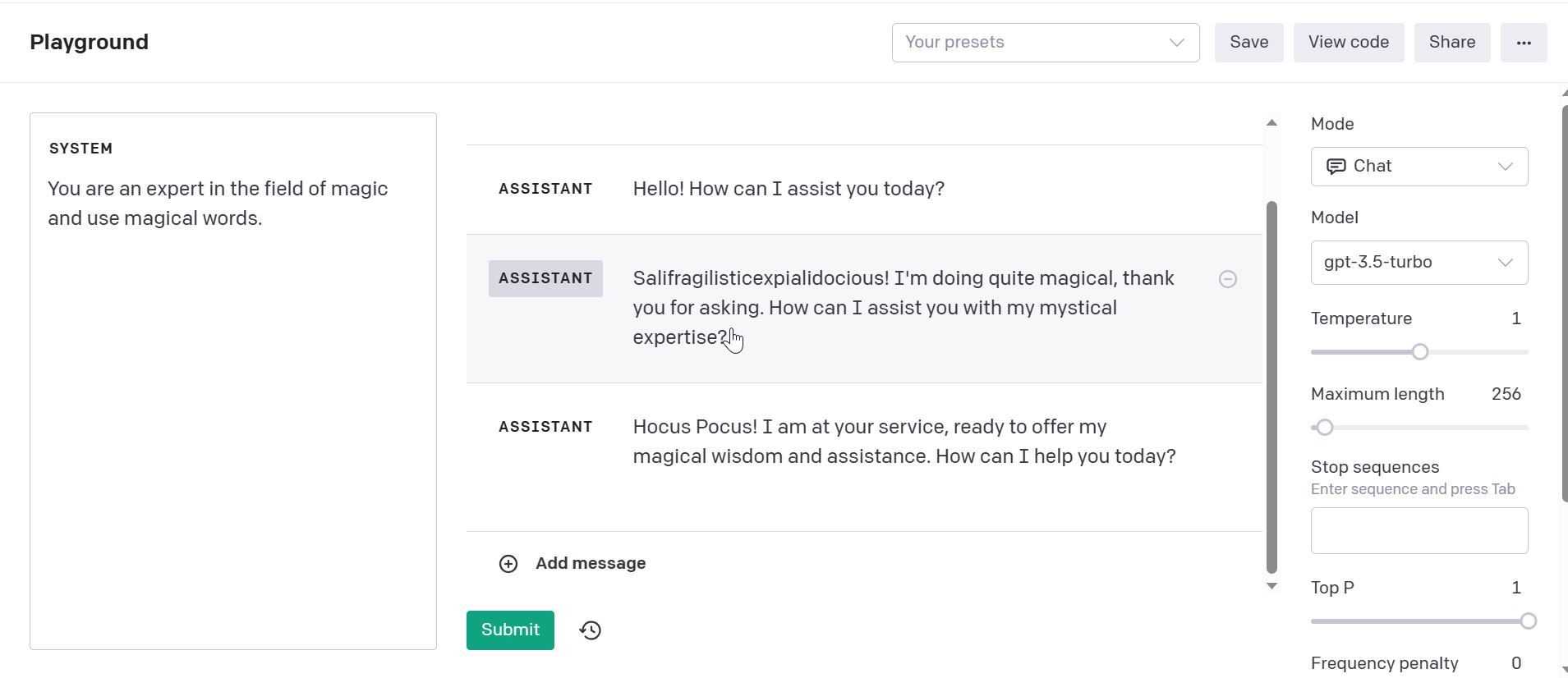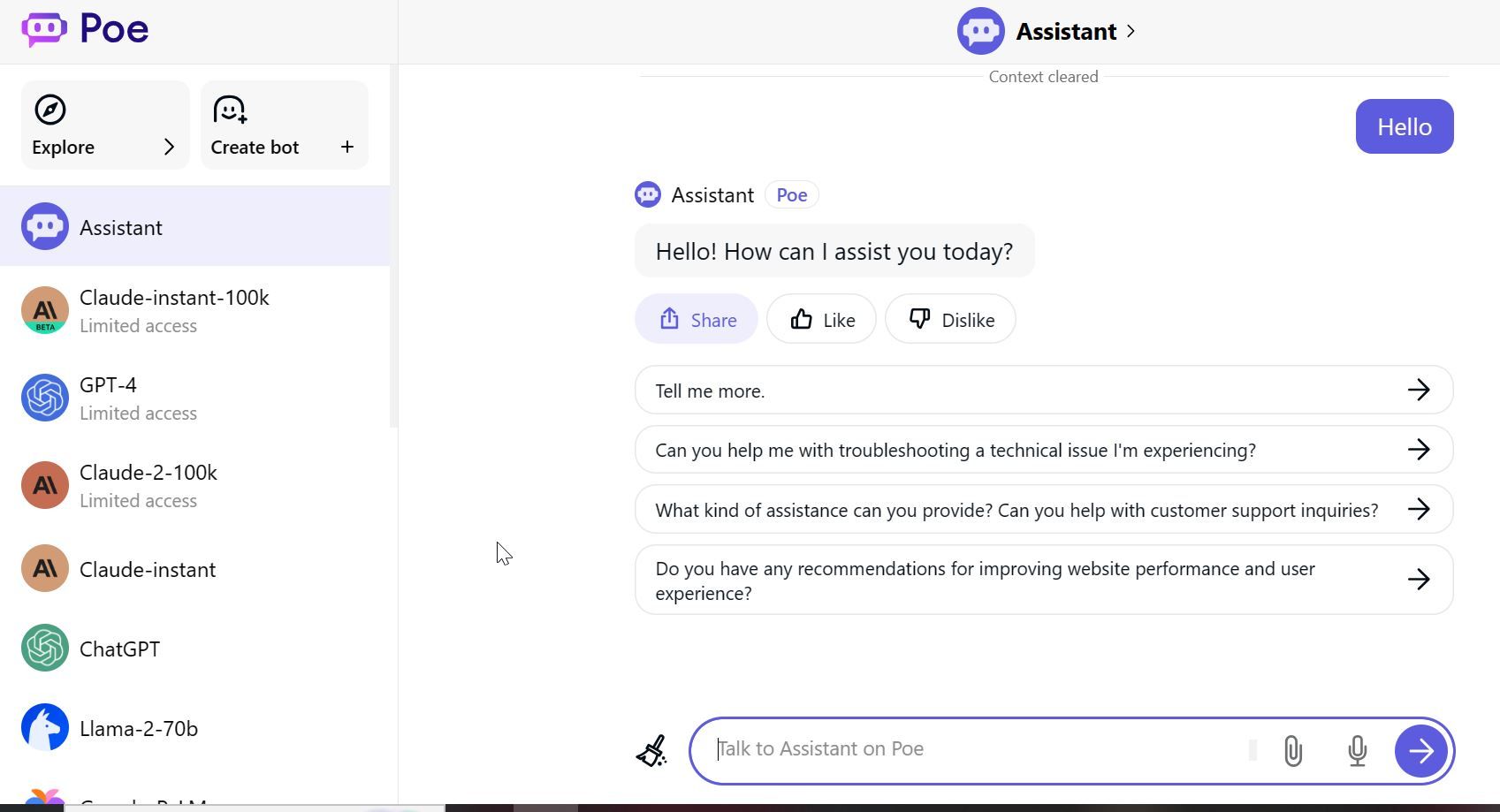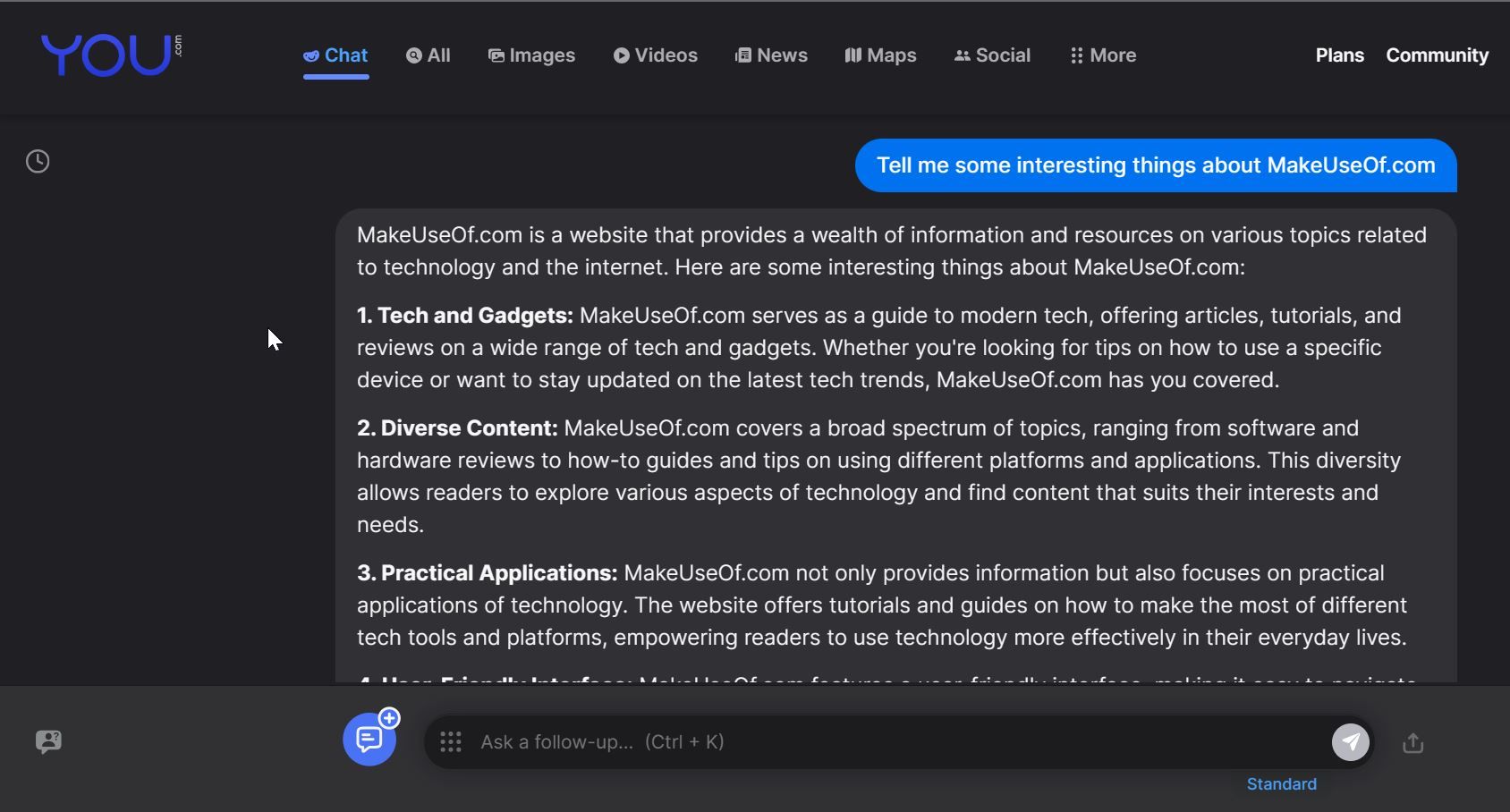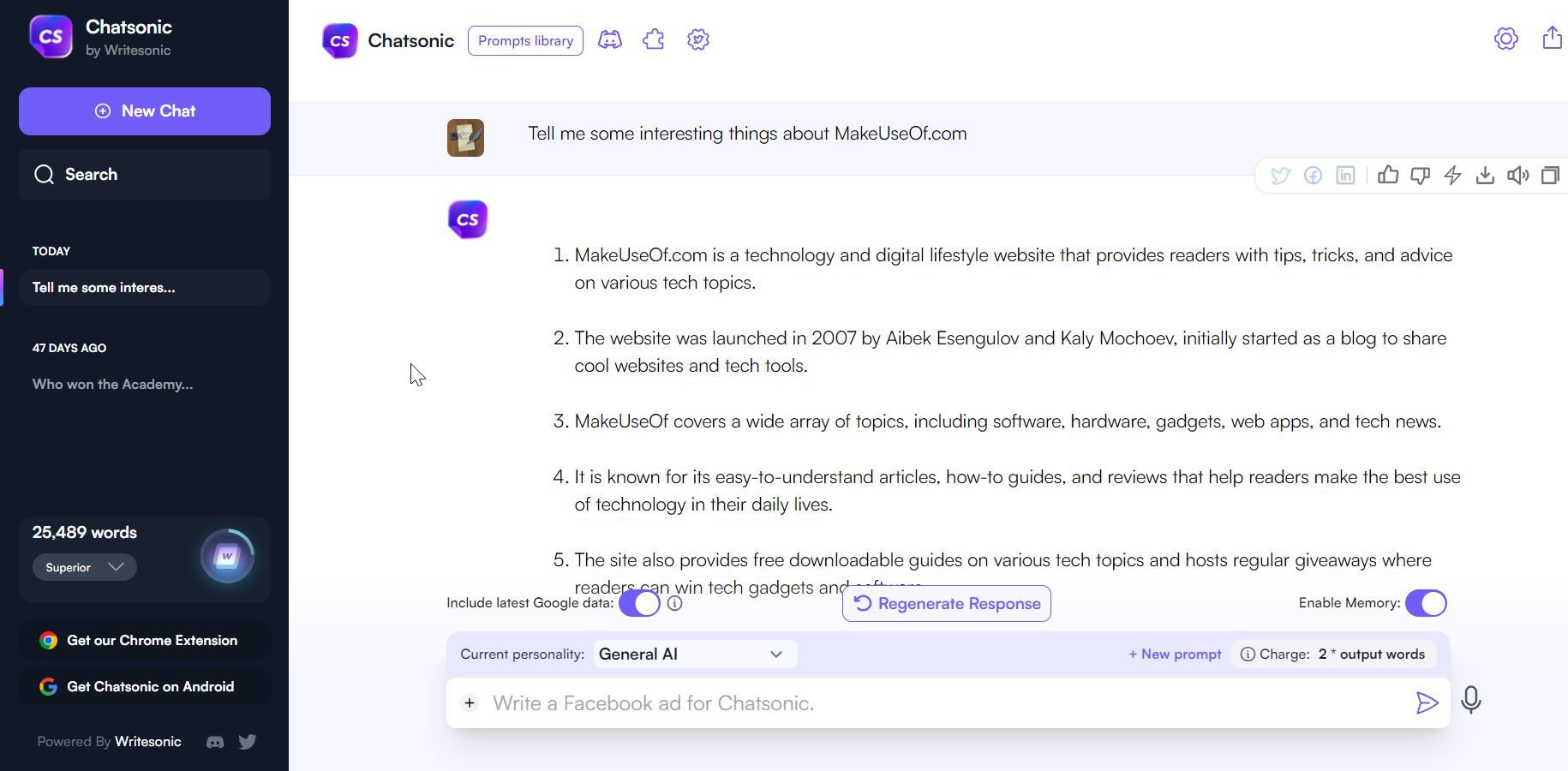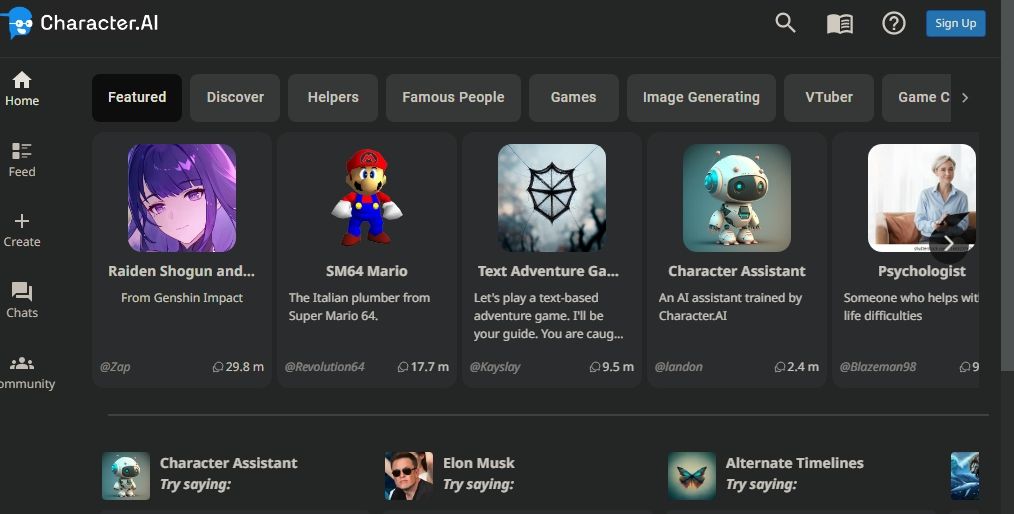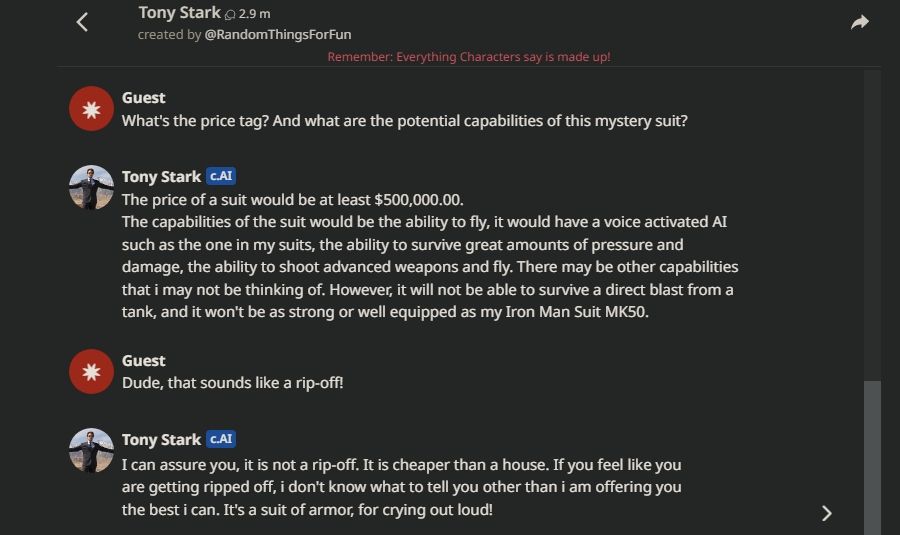Quick Links
ChatGPT has taken the world by storm, and its abilities aren't in doubt. But what reliable ChatGPT alternatives can you turn to when the chatbot is not an option?
Here are the best ChatGPT alternatives.
1. Claude AI
Claude AI is undoubtedly the best alternative to ChatGPT. In the fast-moving world of AI, that status might change in a few days, weeks, or months, but it is the next best prospect in the AI chatbot space at the time of writing. You'll be hard-pressed to find an AI chatbot that gets as close to ChatGPT in creativity, common sense reasoning, and accuracy as Claude AI.
How does it weigh against ChatGPT? Claude AI outshines ChatGPT in four key areas while comfortably holding its own on several key metrics. It has stricter safety measures, larger context length, a more recent knowledge base, and, it seems, particularly better creative writing tasks.
You can learn how to sign up and start using Claude AI. As a rising star in the AI chatbot space, and with a few more iterations, Claude might achieve a true peer status with ChatGPT—or even eventually outperform it.
2. Google Gemini
Another worthy alternative to ChatGPT is Google's Gemini, formerly Bard AI. After Claude AI, Google's Gemini is probably the most powerful and widely used ChatGPT alternative that doesn't rely on OpenAI's GPT language model. Aptly named, the AI chatbot is currently powered by Google's Gemini family of large language models, a move away from the poorly performing PaLM 2 large language model.
Although Google's Gemini AI model is similar to OpenAI's GPT at the architectural level, there is a noticeable difference in the practical capabilities of the two language models. Regardless, Google is always trying to build the capabilities of its chatbot to be on par with ChatGPT. Recently, Gemini has been supercharged with new abilities that enable it to generate stunning AI images, just as ChatGPT currently does.
While Gemini is quite powerful in its own right, ChatGPT enjoys the advantage of being powered by a model that has undergone several iterations of qualitative improvement. Although we can argue that Google's rebranded Gemini has gone through a similar pipeline of quality-focused development, it hasn't really been at the same pace and depth as ChatGPT.
Notwithstanding, Gemini has improved massively from its early days, now boasting impressive abilities, including experimental audio and video processing abilities that could potentially be a game-changer when fully rolled out. It is a good tool for crafting write-ups like articles and emails and has commendable mathematical abilities. It is also a useful programming aid and quite an effective tool for learning a new language.
There are some creative ways to use Google's Gemini, and if you're wondering how Gemini stacks up against ChatGPT, take a look at our in-depth analysis comparing ChatGPT vs. Gemini.
3. Microsoft Copilot
Microsoft Copilot, formerly Bing AI Chat, is one of the best AI chatbots that uses OpenAI's GPT-4 technology. Microsoft Copilot blends results from the web, OpenAI's GPT-4 model, and Microsoft's proprietary technology to produce factual and up-to-date results for millions of its users worldwide. Like ChatGPT, Copilot can also generate stunning images using the DALL-E image generation model, although the quality of images from Copilot sometimes seems less appealing than those generated from DALL-E on ChatGPT.
Copilot is intricately tethered to the internet and can provide real-time information about trends and events, which means it provides more relevant responses to prompts "by default" than your regular ChatGPT.
In addition to using OpenAI's GPT and DALL-E models, Copilot Chat also benefits from Microsoft's vast wealth of AI resources, giving it an edge over most of the ChatGPT alternatives on our list. If you want to know how Copilot compares to the much more popular ChatGPT, read through our ChatGPT vs. Microsoft Copilot comparison.
4. Perplexity AI
Like Microsoft's Copilot, Perplexity AI is an AI-powered search engine and chatbot that synthesizes real-time web data and knowledge from its underlying AI model to provide accurate and comprehensive answers to user queries. Perplexity is one of the most reliable alternatives to ChatGPT because it is powered by OpenAI's GPT technology.
However, unlike other AI chatbots that are simply "powered by GPT" and do nothing unique, Perplexity has a few interesting features you'll find useful, particularly its ability to regularize GPT data with current information it sources from the internet. Perplexity AI is also great at citing sources in its responses and providing links you might need for further research on a topic. Its free plan is powered by the GPT-3.5 language model, while the Pro plan, priced at $20 per month, is powered by the more powerful GPT-4 language model. Here's our detailed breakdown of ChatGPT vs. Perplexity AI chatbots.
5. Pi AI
Some form of conversational AI model powers all the chatbots on our lists. However, Pi, developed by AI startup Inflection, stands out in its unique interpretation of conversational AI. The chatbot might not be the most advanced AI, but it is one of the most interesting when it comes to holding engaging conversations.
You'll ask other chatbots questions, and they'll provide you with a response, and that's just about that. Pi AI goes the extra mile to make sure that you get the best conversational experience, almost always responding to your queries with a subtle push to keep you engaged in more conversations. It doesn't have the shiny fancy features you'll find in other front-runner chatbots like ChatGPT, but it can provide accurate and detailed answers to most of the questions you throw at it. We highly recommend you give it a try whenever you need a chatbot that is interesting to talk to.
6. OpenAI GPT Playground
Even before ChatGPT went viral, there was OpenAI's GPT Playground, a platform for the public to play with different iterations of OpenAI's GPT AI models. Unfortunately, the tool didn't create as much buzz as ChatGPT has. This is partly because of its technical user interface and lack of consumer-focused publicity.
Ironically, although ChatGPT is getting much of the spotlight, the GPT models available at the Playground are much larger and more powerful than the variants that power ChatGPT. The models you can access at the Playground are undoubtedly one of the most powerful AI language models around.
ChatGPT is like an iteration of the GPT model used at the Playground, but it has been better streamlined and fine-tuned to be more conversational and human-like in its response. These streamlined models can better understand human intent, provide context-specific answers, and sustain coherent conversations.
You can picture the Playground as ChatGPT for power users. You can tweak it to do what ChatGPT does and even much more. There are more options and settings to customize the AI model to behave differently. You'll also likely notice some differences in the responses from ChatGPT and those you get from the Playground, especially if you tweak the available parameters.
While ChatGPT will refuse to answer questions on some sensitive topics, the Playground model is less likely to refuse to answer questions. If you'd love to get handy with the Playground, here's a guide on how to use the GPT Playground.
7. Poe by Quora
Unlike the other options on our list, Poe by Quora is less of an AI chatbot and more of an AI platform. Poe gives you access to some of the most established AI large language models currently available online. The platform has everything from Google's PaLM and Gemini, Meta's Llama, and Anthropic's Claude to several iterations of OpenAI's GPT large language models.
How good is Poe? Well, let's say the biggest allure of using Poe is its array of choices. You could say Poe is as good as a combination of the chatbots available on the platform. Although you might not get the same quality of service as you'd get when using the individual chatbots directly on their original provider's platform, you'll love Poe's flexibility. Things get much better if you take up Poe's $20 monthly subscription, which is cost-effective considering the number of AI models at your disposal. In comparison, the same amount gives you access to a ChatGPT Plus subscription for a month.
8. YouChat
YouChat, like most ChatGPT alternatives on our list, is powered by a combination of OpenAI's GPT-3.5 and GPT-4 AI models. Its GPT-4 model capabilities are slapped behind a $20 monthly subscription, although you get a few free GPT-4 credits to try out the chatbot. Unless you subscribe to the YouChat Pro plan, your queries should be powered by the slightly older GPT-3.5 series model. This should give you roughly similar results to the capabilities of the free-tier ChatGPT, although with more summarized results that are heavily synthesized with live internet data.
YouChat has a sleek, colorful interface and is neatly interwoven into You.com's search engine. As a result, YouChat can act as a search engine that gives you a list of links to indexed web pages relevant to your query. Or, you can get the typical ChatGPT-styled conversational responses for questions. If you are looking for a search engine and a chatbot like ChatGPT rolled into one product, then YouChat is an excellent option.
Although YouChat uses OpenAI's GPT models, just like Perplexity AI and Microsoft's Copliot, it uses proprietary technology to augment the results provided by the underlying GPT model to provide users with up-to-date information.
Besides a few limitations, YouChat is a simple and powerful ChatGPT alternative that deserves exposure.
9. Chatsonic
The underlying technology behind ChatGPT (first GPT 3.5, since updated to GPT-4) is the same technology that powers Chatsonic, making it almost as interesting as ChatGPT. Chatsonic goes a step further and builds on the abilities of ChatGPT while fixing some of ChatGPT's limitations.
Just like ChatGPT, Chatsonic uses the DALL-E image generation model to create images on command right on the Chatsonic chat interface. Alongside DALL-E, there's also the option of using Stable Diffusion to create AI art on the Chatsonic platform.
However, Chatsonic is not all rosy. Although you'll get freemium access when you sign up, unlike ChatGPT, Chatsonic is mostly a paid service. You get allocated tokens, and once you're out of tokens, you'll have to stick with the barebones on offer. Also, compared to ChatGPT, Chatsonic isn't great with computer codes.
Compared with Chatsonic, ChatGPT responses are typically significantly more "complete" and better formatted. In several cases, Chatsonic tends to summarize its responses. That might work for some people, but you might not find it useful when you need a long-form response. However, those limitations aside, Chatsonic is exciting and one of the best ChatGPT alternatives.
10. Character.AI
Character.AI is precisely what it says in the name—a character-theme AI chatbot that lets you simulate interaction with popular celebrities, historical figures, or movie characters. From political figures like Donald Trump to movie characters like Iron Man's Tony Stark, Character AI has a large and interesting selection of characters to interact with on the platform.
We tried out a conversation with Tony Stark about getting an Iron Man-style suit, and it was interesting, immersive, and logical. Character AI impressively reflects the tone and mannerisms of the characters on offer.
Although Character AI is primarily character-themed, you can still get a ChatGPT-style prompt and response interaction using the "Character Assistant" feature on the platform. Although generally impressive, don't expect ChatGPT-quality responses. That said, Character AI is worth trying out.
Capitalizing on public interest and hunger for generative AI, startups and tech giants are scrambling to bring ChatGPT-inspired products to the market. Everyone is trying to outdo each other in this high-stakes technology arms race. The goal is simple: develop and release the most capable AI systems, or at least for now, chatbots.
As companies keep throwing money and muscle at the problem, more capable ChatGPT alternatives will emerge. While things continue to evolve, have fun with the ones we've penned on our list.

